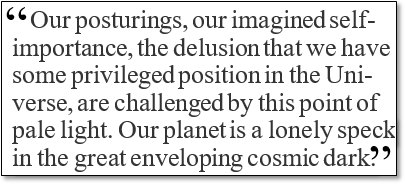Tag: environment

Greta Thunberg: Most Important Message Ever
If you are a Lifeboat subscriber or have been reading these pages for awhile, you may know why it’s called “Lifeboat”. A fundamental goal of our founder, board, writers and supporters is to sustain the environment, life in all its diversity, and—if necessary—(i.e. if we destroy our environment beyond repair, or face a massive incoming asteroid), to prepare for relocating. That is, to build a lifeboat, figuratively and literally.
But most of us never believed that we would face an existential crisis, except perhaps a potential for a 3rd World War. Yet, here we are: Burning the forests, killing off unspeakable numbers of species (200 each day), cooking the planet, melting the ice caps, shooting a hole in the ozone, and losing more land to the sea each year.
Regading the urgent message of Greta Thunberg, below, I am at a loss for words. Seriously, there is not much I can add to the 1st video below.
Information about climate change is all around us. Everyone knows about it; Most people understand that it is real and it that poses an existential threat, quite possibly in our lifetimes. In our children’s lives, it will certainly lead to war, famine, cancer, and massive loss of land, structures and money. It is already raising sea level and killing off entire species at thousands of times the natural rate.
Yet, few people, organizations or governments treat the issue with the urgency of an existential crisis. Sure! A treaty was signed and this week, Jeff Bezos committed to reducing the carbon footprint of the world’s biggest retailer. But have we moved in the right direction since the Paris Accords were signed 4 years ago? On the contrary, we have accelerated the pace of self-destruction.

Promise in the Gloom? How Bleak Future Scenarios for Employment Might Save the Environment
How might future changes in the structure of business and the nature of work impact the environment?
While governments around the world are wrestling with the potential for massive on-rushing technological disruption of work and the jobs market, few are extending the telescope to explore what the knock-on impacts might be for the planet. Here we explore some dimensions of the issue.
Although replacing humans with robots has a dystopian flavor, what, if any positives are there from successive waves of artificial intelligence (AI) and other exponentially developing technologies displacing jobs ranging from banker to construction worker? Clearly, the number of people working and the implications for commuting, conduct of their role and their resulting income-related domestic lifestyle all have a direct bearing on their consumption of resources and emissions footprint. However, while everyone wants to know the impact of smart automation, the reality is that we are all clueless as to the outcome over the next twenty years, as this fourth industrial revolution has only just started.
There is a dramatic variation in views on the extent to
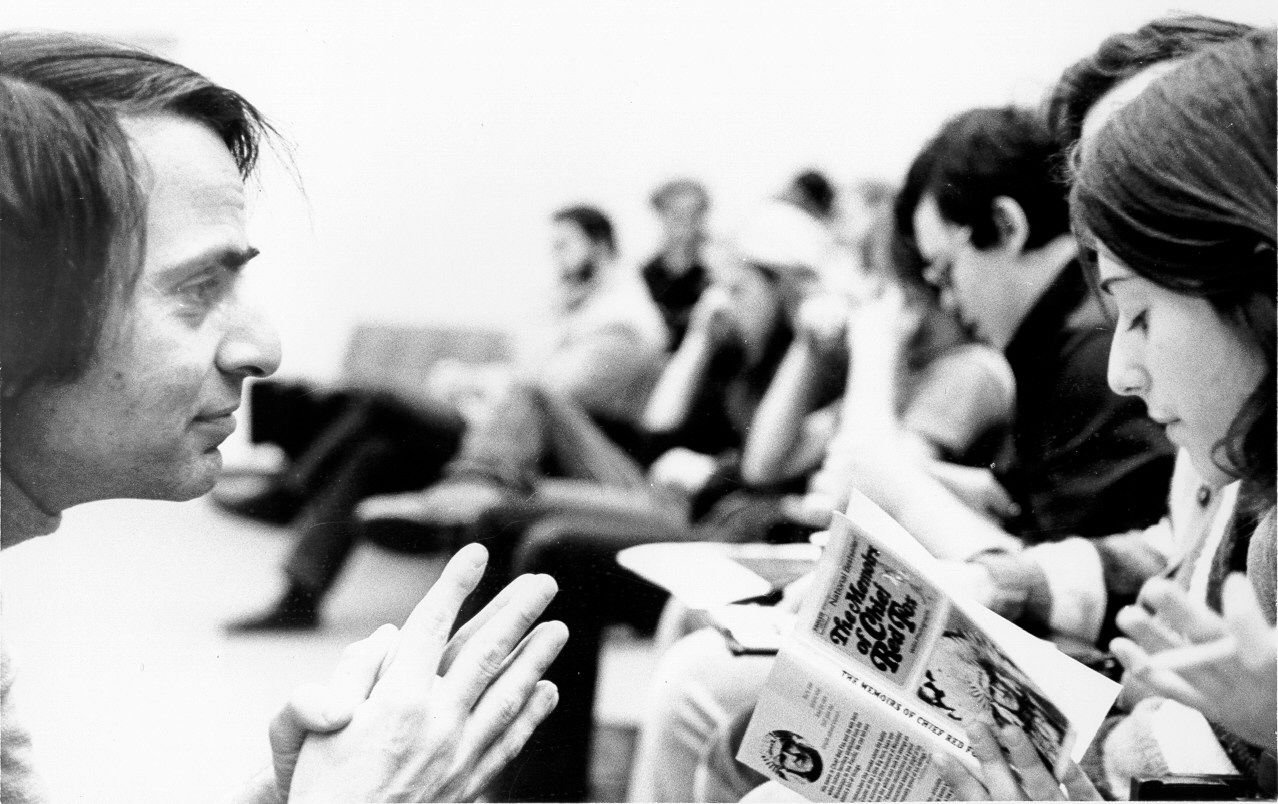
What has changed since “Pale Blue Dot”?
I am not an astronomer or astrophysicist. I have never worked for NASA or JPL. But, during my graduate year at Cornell University, I was short on cross-discipline credits, and so I signed up for Carl Sagan’s popular introductory course, Astronomy 101. I was also an amateur photographer, occasionally freelancing for local media—and so the photos shown here, are my own.
Carl Sagan is aware of my camera as he talks to a student in the front row of Uris Hall
By the end of the 70’s, Sagan’s star was high and continuing to rise. He was a staple on the Tonight Show with Johnny Carson, producer and host of the PBS TV series, Cosmos, and he had just written Dragons of Eden, which won him a Pulitzer Prize. He also wrote Contact, which became a blockbuster movie, starring Jodie Foster.
Sagan died in 1996, after three bone marrow transplants to compensate for an inability to produce blood cells. Two years earlier, Sagan wrote a book and narrated a film based on a photo taken from space.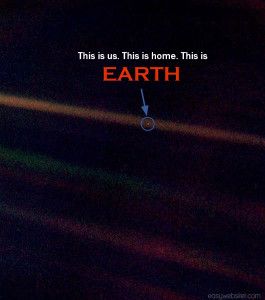
Pale Blue Dot is a photograph of Earth taken in February 1990, by Voyager 1 from a distance of 3.7 billion miles (40 times the distance between earth and the sun). At Sagan’s request (and with some risk to the ongoing scientific mission), the space probe was turned around to take this last photo of Earth. In the photo, Earth is less than a pixel in size. Just a tiny dot against the vastness of space, it appears to be suspended in bands of sunlight scattered by the camera lens.
Four years later, Sagan wrote a book and narrated the short film, Pale Blue Dot, based on the landmark 1990 photograph. He makes a compelling case for reconciliation between humans and a commitment to care for our shared environment. In just 3½ minutes, he unites humanity, appealing to everyone with a conscience. [Full text]
—Which brings us to a question: How are we doing? Are we getting along now? Are we treating the planet as a shared life-support system, rather than a dumping ground?
Sagan points out that hate and misunderstanding plays into so many human interactions. He points to a deteriorating environment and that that we cannot escape war and pollution by resettling to another place. Most importantly, he forces us to face the the fragility of our habitat and the need to protect it. He drives home this point by not just explaining it, but by framing it as an urgent choice between life and death.
It has been 22 years since Sagan wrote and produced Pale Blue Dot. What has changed? Change is all around us, and yet not much has changed. To sort it all out, let’s break it down into technology, our survivable timeline and sociology.
Technology & Cosmology
- Since Carl Sagan’s death, we have witnessed the first direct evidence of exoplanets. Several hundred have been observed and we will likely find many hundreds more each year. Some of these are in the habitable zone of their star.
- Sagan died about 25 years after the last Apollo Moon mission. It is now 45 years since those missions, and humans are still locked into low earth orbits. We have sent a few probes to the distant planets and beyond, but the political will and resources to conduct planetary exploration—or even return to the moon—is weak.
- A few private companies are launching humans, satellites or cargo into Space (Space-X, Virgin Galactic, Blue Origin). Dozens of other private ventures have not yet achieved manned flight or an orbital rendezvous, but it seems likey that some projects will succeed. Lift off is becoming commonplace—but almost all of these launches are focused on TV, communications, monitoring our environment or monitoring our enemies. The space program no longer produces the regular breakthroughs and commercial spin-offs that it did throughout the 70s and 80s.
continue below photo…
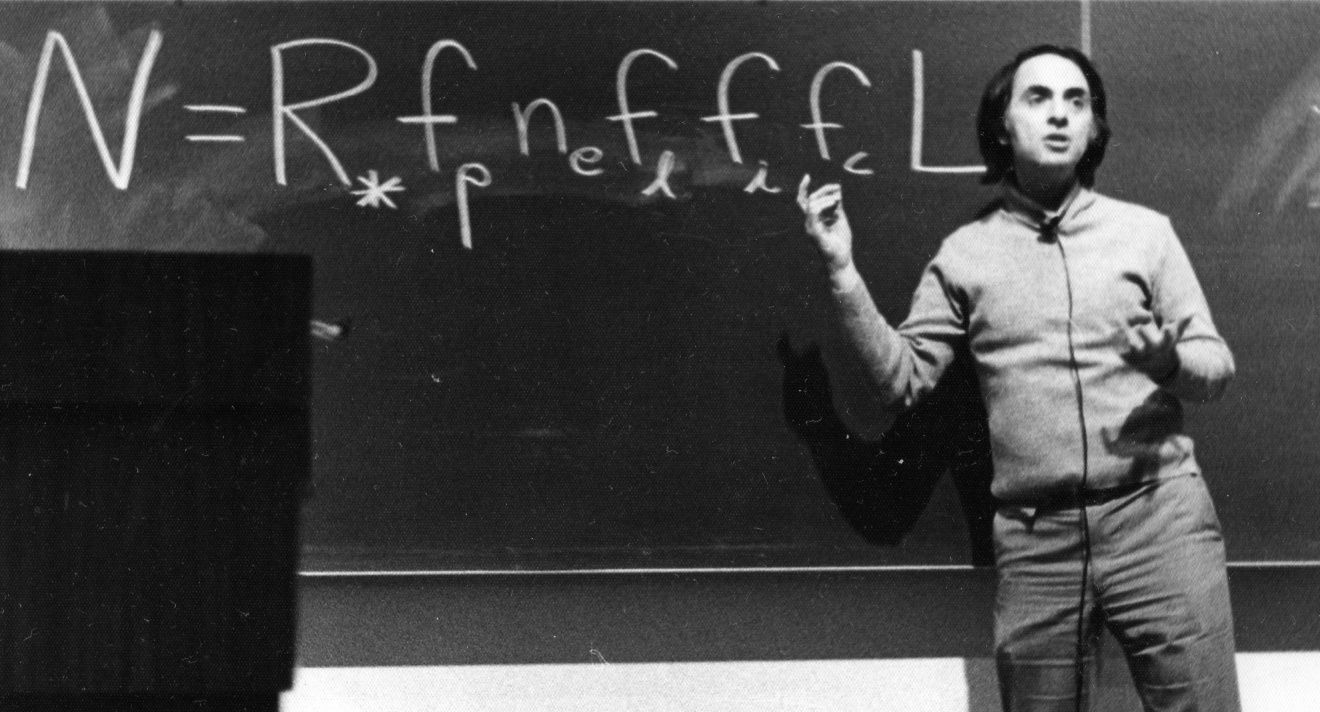
Survivable Timeline
- Like most scientists, Carl Sagan was deeply concerned about pollution, nuclear proliferation, loss of bio-diversity, war and global warming. In fact, the debate over global warming was just beginning to heat up in Sagan’s last years. Today, there is no debate over global warming. All credible scientists understand that the earth is choking, and that our activities are contributing to our own demise.
- In most regions, air pollution is slightly less of a concern than it was in the 1970s, but ground, water pollution, and radiation contamination are all more evident.
- Most alarmingly, we humans are even more pitched in posturing and in killing our neighbors than ever before. We fight over land, religion, water, oil, and human rights. We especially fight in the name of our Gods, in the name of national exceptionalism and in the name of protecting our right to consume disposable luxury gadgets, transient thrills and family vacations—as if we were a prisoner consuming his last meal.
We have an insatiable appetite for raw materials, open spaces, cars and luxury. Yet no one seems to be doing the math. As the vast populations of China and India finally come to the dinner table (2 billion humans), it is clear that they have the wealth to match our gluttony. From where will the land, water, and materials come? And what happens to the environment then? In Beijing, the sky is never blue. Every TV screen is covered in a thick film of dust. On many days, commuters wear filter masks. There is no grass in the parks and no birds in the sky. Something is very wrong. With apologies for a mixed metaphor, the canary is already dead while the jester continues to dance.
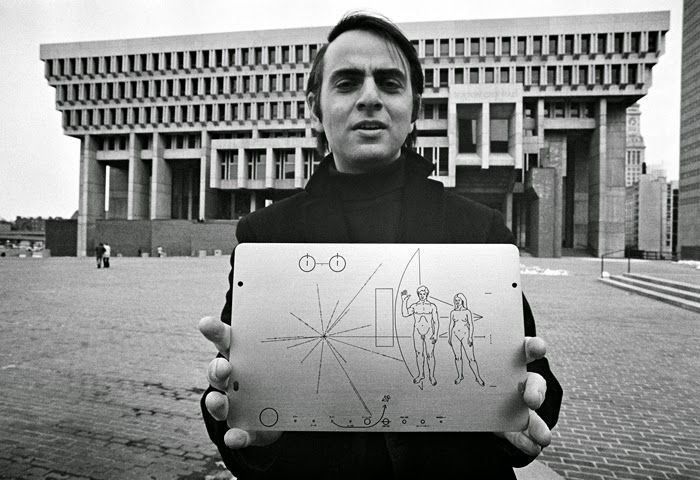
Sociology: Man’s Inhumanity to Man
- Sagan observed that our leaders are passionate about conquering each other, spilling blood over frequent misunderstandings, giving in to imagined self-importance. None of this has changed.
- Regarding our ability to get off of this planet, Sagan said “Visit? Perhaps…Settle? Not yet”. We still do not possess the technology or resources to settle even a single astronaut away from our fragile home planet. We won’t have both the technology and the will to do so for at least 75 years—and then, only a tiny community of scientists or explorers. It falls centuries shy of resettling a population.
- Hate, zealotry, intolerance and religious fervor are more toxic than ever before
- Today, the earth has a bigger population. Hate and misunderstanding has spread like cancer. Weapons of mass destruction have escaped the restraint of governments, oversight and safety mechanisms. They are now in the hands of intolerant and radical organizations that believe in martyrdom and that lack any desire to coexist within a global community.
- Nations, organizations and some individuals possess the technology to kill a million people or more. Without even targeting civilians, a dozen nations can lay waste to the global environment in weeks.
Is it time to revisit Pale Blue Dot? Is it still relevant? The urgency of teaching and heeding Carl Sagan’s words has never been more urgent than now.
Postscript:
Carl Sagan probably didn’t like me. When I was his student, I was a jerk.
Sagan was already a TV personality and author when I took Astronomy 101 in 1977. Occasionally, he discussed material from the pages of his just-released Dragons of Eden, or slipped a photo of himself with Johnny Carson into a slide presentation. He clearly was a star attraction during parent’s weekend before classes started.
Indeed, he often used the phrase “Billions and Billions” even before it led as his trademark. Although he seemed mildly mused that people noticed his annunciation and emphasis, he explained that he thought it was a less distracting alternate to the phrase “That’s billions with a ‘B’ ” when generating appreciation for the vast scope of creation.
At this time that Sagan was my professor, he appeared on the cover of Newsweek magazine. Like a lunkhead, I wrote to Newsweek, claiming that his adulation as a scientist was misplaced and that he was nothing more than an PR huckster for NASA and JPL in the vein of Isaac Asimov. I acknowledged his a gift for popularizing science, but argued that he didn’t have the brains to contribute in any tangible way.
I was wrong, of course. Even in the role of education champion, I failed to appreciate the very powerful and important role that he played in influencing an entire generation of scientists, including, Neil DeGrasse Tyson. Although Newsweek did not publish my letter to the editor, someone on staff sent it to Professor Sagan! When the teaching assistant, a close friend of Sagan, showed me my letter, I was mortified.
Incidentally, I always sat in the front row of the big Uris lecture hall. As a student photographer, I took many photos, which show up on various university web sites from time to time. In the top photo, Professor Sagan is crouching down and clasping hands as he addresses the student seated next to me.

2015 IEEE International Geoscience and Remote Sensing Symposium | July 26–31, 2015 | Milan, Italy
Hosted by the IEEE Geoscience and Remote Sensing Society, the International Geoscience and Remote Sensing Symposium 2015 (IGARSS 2015) will be held from Sunday July 26th through Friday July 31th, 2015 at the Convention Center in Milan, Italy. This is the same town of the EXPO 2015 exhibition, whose topic is “Feeding the planet: energy for life”.

The Art of Time | The Plus
Art and photography often dovetail nicely, to the point of being indistinct at times. But rarely does photography achieve the sort of free-flowing, brush-like effects that Matt Molloy imbues his incredible Time Stack photographs with. “My time stack series is a lot like a digital version of what the impressionist painters where trying to achieve in the 19th-century,” says Matt.
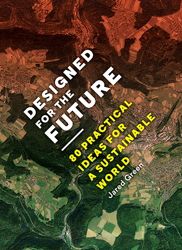
Designed for the Future: 80 Practical Ideas for a Sustainable World
“In Designed for the Future, author Jared Green asks eighty of today’s most innovative architects, urban planners, landscape architects, journalists, artists, and environmental leaders the same question: what gives you the hope that a sustainable future is possible?”
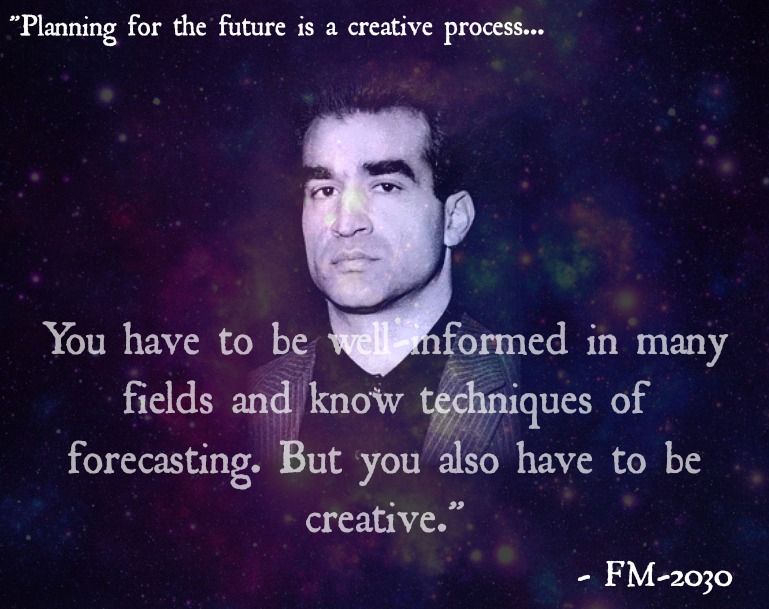
How Creative Are You? Pt. III — Environment
One of the major aspects that can make or break a creative person according to FM-2030 is the environment. In his book “Are You A Transhuman?”, he asks the reader to grade their own surroundings: “Does your home environment stimulate innovation — cross fertilization — initiative?”
We bet you can see where this is going.
The answers are, once more, “Often, Sometimes, or Hardly Ever”, with “Often being the answer choice that gives you the most points — another 2 to tally up to your score if you’re already proving to be more transhumanist that you thought. It might seem obvious, but it’s true — environment can play a major role in the stimulation of creativity. FM says that “It is difficult to be precise about creativity — how much of it is inherited and how much is learned.” If an environment is one that “encourages free unrestricted thinking… encourages people to take initiatives… open and ever-changing”, it is a dynamic environment that can stimulate creativity in an individual.
People who work with telecommunications are susceptible to views that are far different than their own, and the sciences, though structured, force a person to think creatively to find answers. By the same token, people who have a good balance of leisure time and work are also cultivating a greater internal environment to stimulate creativity. And in case you were forgetting the reason creativity is important to FM-2030, perhaps take a look at his quote that sums up the chapter perfectly, below.
